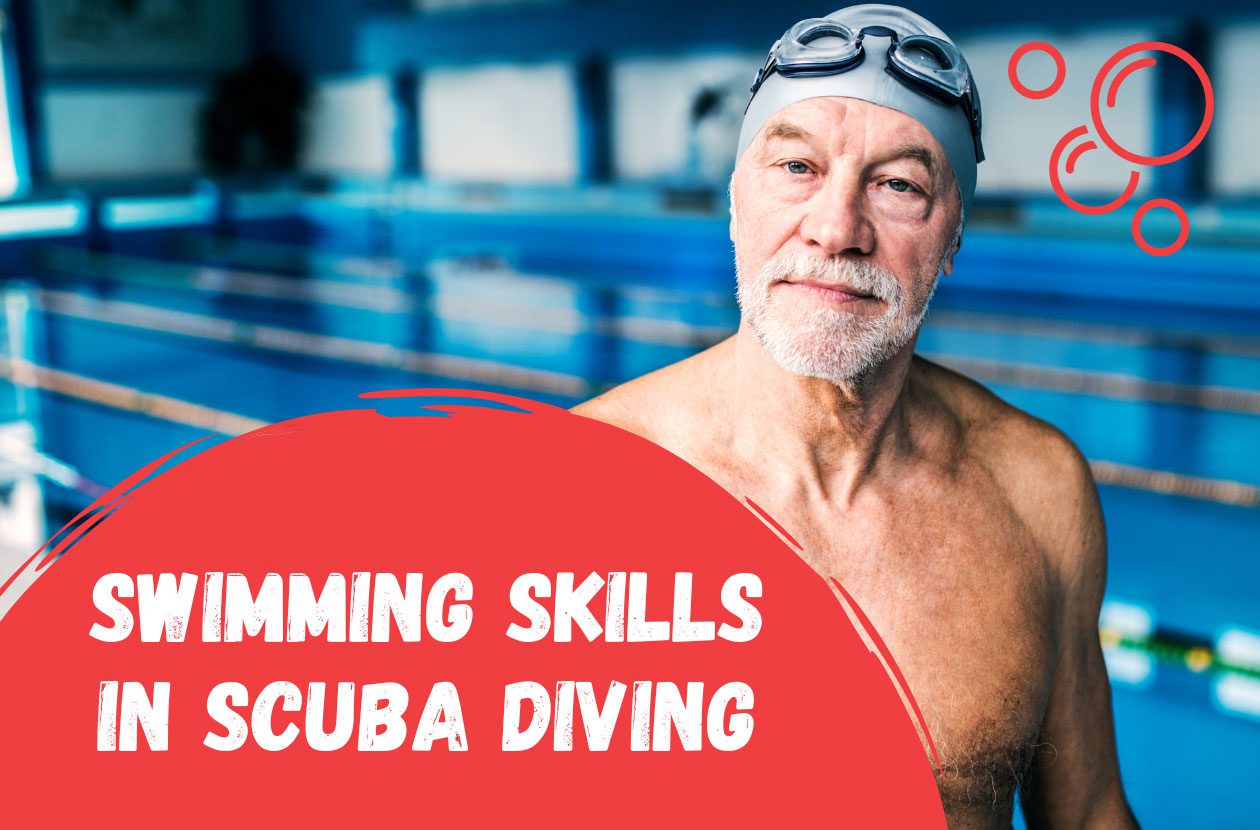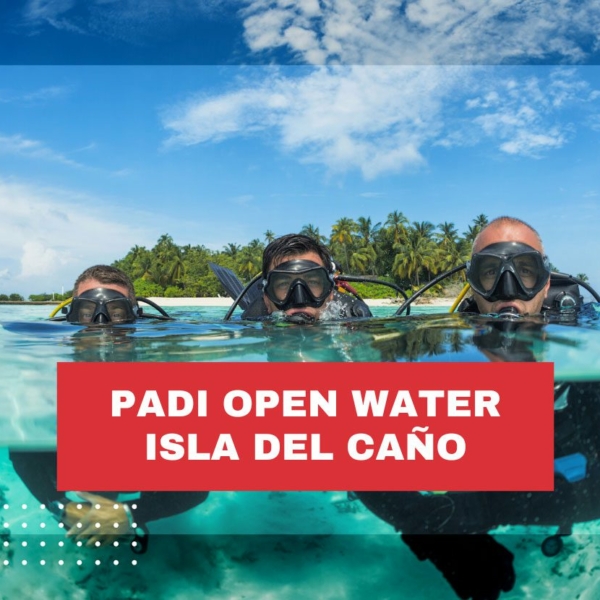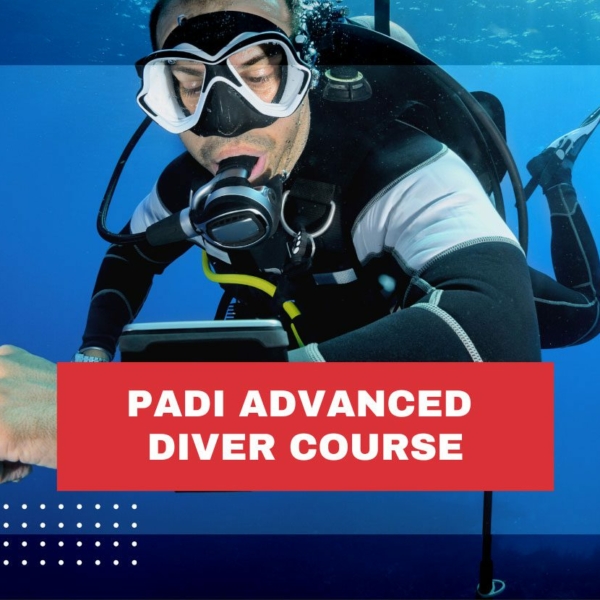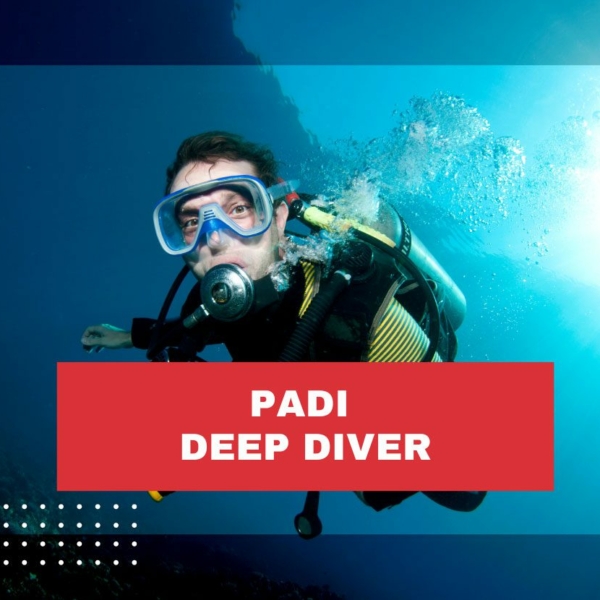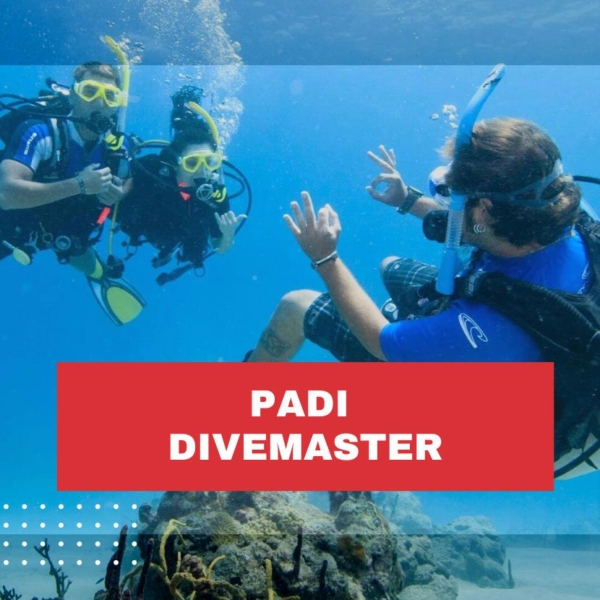Swimming and diving, what is it really like? Do you need to know how to swim to dive? Entering a new, unknown world is a lot of fun. Being in such a different environment from the one we know every day means overcoming our inner barriers and fears, but also discovering colors, shapes, life forms invisible from the ground.
However, many people ask themselves whether one needs to swim perfectly to dive, or whether a person who does not swim at all can dream of diving into a pool, sea or ocean. We will try to comprehensively answer these doubts.
Table of Contents
Swimming and diving are not the same
The question of swimming skills always arises in a beginner’s course. Very often we also have a situation where one person from the couple enrolls in the course, while the other prefers to stay on shore. When asked why she/he also doesn’t want to become a licensed diver, replies that can’t swim well.
This is a very big misunderstanding and a huge myth, the beginning of which I can’t trace. Perhaps the logical consequence of the ability to swim, is the ability to dive, but nothing could be further from the truth.
The first steps of a future diver
Scuba diving doesn’t work so that you can just go into the water and dive without training. No rational person, moreover, will do it. Without training by a licensed diving instructor, we may be limited to just swimming with a mask and snorkel or diving 1-2 meters to observe fish or flora from above. However, those who actually want to possess the ability to scuba dive must take a course under the guidance of an instructor. Each training course is conducted by a professional, preceded by theoretical classes and held in duo with an instructor who also goes underwater.
Who can try diving?
A prospective diver must be at least 10 years old if diving with equipment and the same if participating in freediving classes, the upper age limit is not specified. One does not have to be an athlete, but basic fitness and good health are important. Only serious illnesses exclude from diving, and these include mental illness, epilepsy or hypertension. It is also worth remembering that any person wishing to take a diving course must make a statement of no contraindications or submit the appropriate certificate from a doctor.
A diver should also not be afraid of water. People who can’t bear to enter larger bodies of water, feel bad when water floods their face, panic in confined spaces, may not only feel uncomfortable, but may pose a danger to other diving participants if they start behaving irrationally. Therefore, the class is designed for people who are at least comfortable in the water and have no problem getting into it.
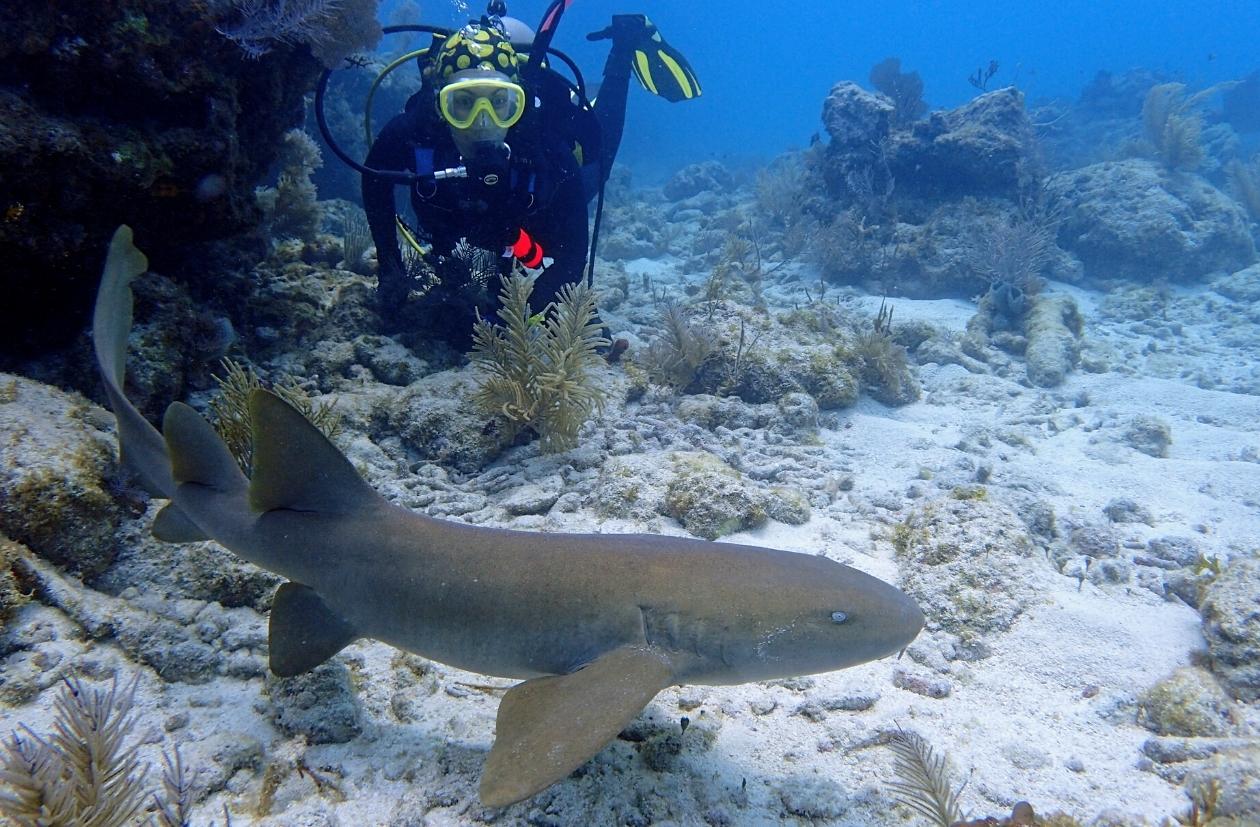
If you swim, feel calm, are self-controlled and have already swum in a pool or open water, scuba diving may suit you! During classes with an instructor, going underwater is done in stages. So, in any situation, you can decide that you do not want to deepen or end the class.
However, I must add here that we are talking about serious mental blocks caused, for example, by trauma experienced or other mental problems. And in this case, it does not mean that your path to diving is closed. We often dive with people with disabilities and use diving as a method of treatment for many mental traumas. It’s just that in this case we have to approach the subject a little differently.
Swimming skills while learing to dive
Well, but how is this swimming and diving? Swimming is a method of moving across the surface of water. For swimming, we use the power of our own muscles. Diving is done below the surface of the water and uses appropriate equipment. The ability to swim is very useful when learning to dive.
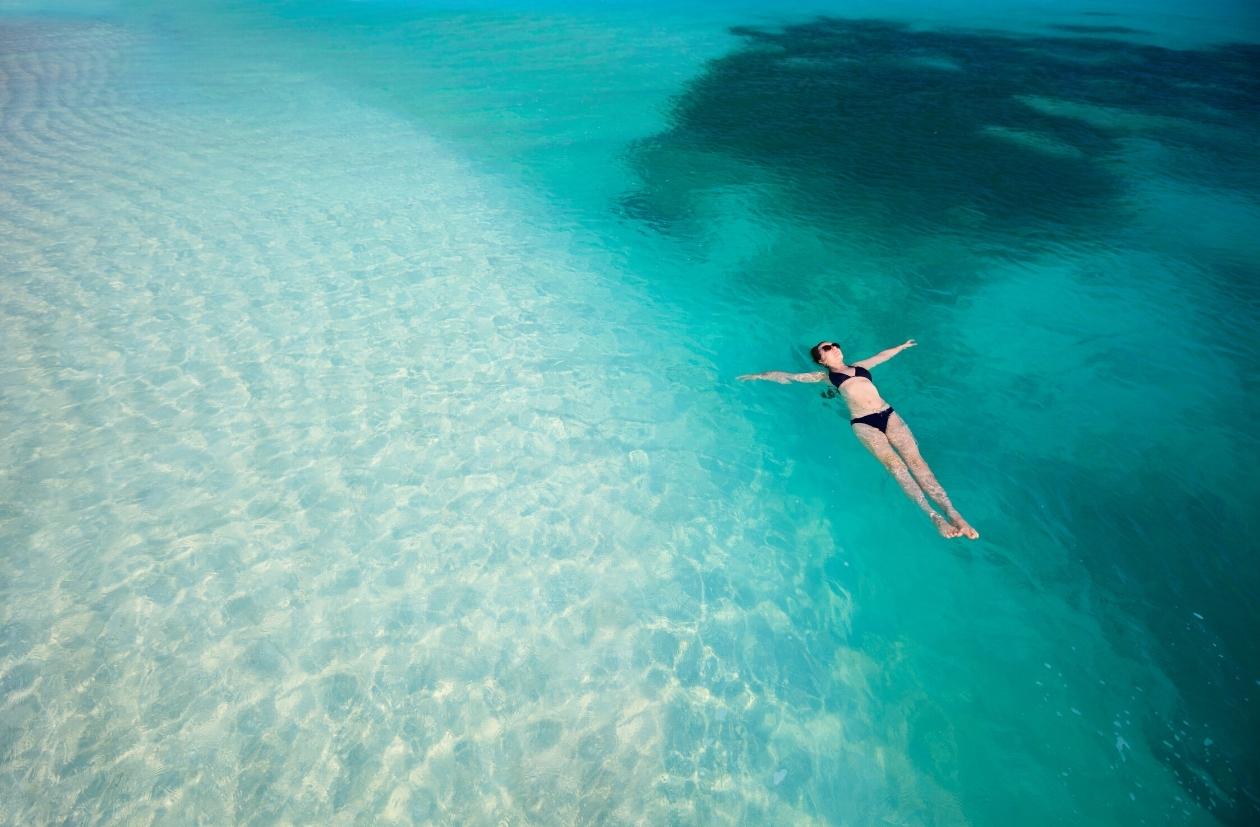
A person who can stay on the surface and swim the distance of the pool feels much better during the class, is more confident and does not have to focus on basic swimming activities. Therefore, if you can swim, all the better for you and your instructor. But do you necessarily have to be a super swimmer to become a diver? Absolutely not!
Swimming vs Scuba diving
When diving, a diver is equipped with all the scuba equipment: jacket, air cylinder, diving mask, fins. All this helps to go underwater and stay underwater longer than is the case in breath-hold diving. All this equipment allows you to descend safely to the depths, as well as to stay in the desired position. Moving underwater, on the other hand, is made possible by fins. And in fact, the ability to swim is…. completely unnecessary.
Swimming vs Freediving
Freediving is diving without an air cylinder, but only on held breath. During such a dive, the diver has a mask, snorkel and fins. And I agree that better swimming skills are required for this type of training. Of course, no one expects you to achieve Olympic results, but it is worthwhile for a diver to be able to swim 200 meters freestyle in a traditional pool. A person who wants to become a freediver must pass a swimming exam. It usually involves swimming 200 meters without fins or 300 meters with fins.
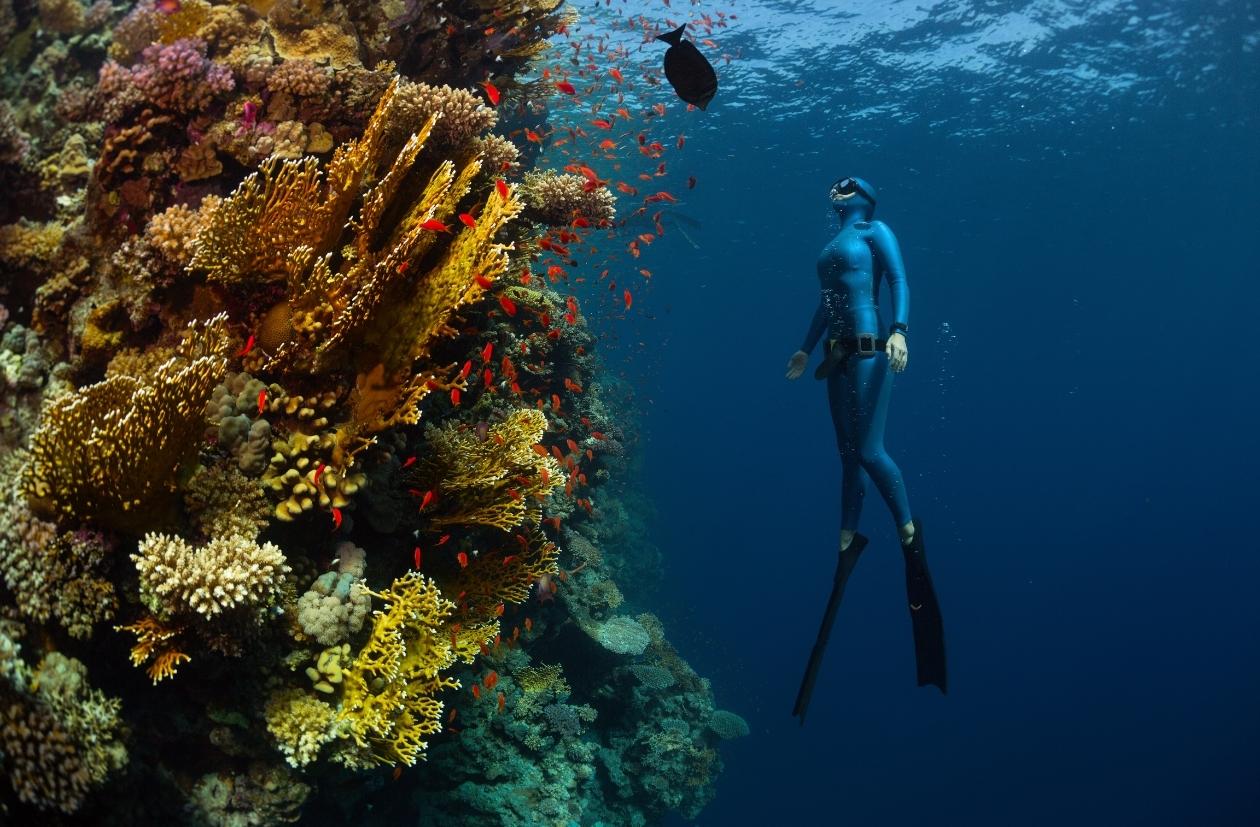
So, do I need to know how to swim to scuba dive?
So, as you can see, scuba diving with equipment and swimming or even snorkeling is something completely different, although it may seem otherwise. Do you have to be able to swim perfectly to even think about a scuba diving course? Definitely not! Of course, being able to handle the water and not panicking are skills worth having, even if you don’t want to become a diver. However, never again say that you won’t do a diving course because you can’t swim well.



